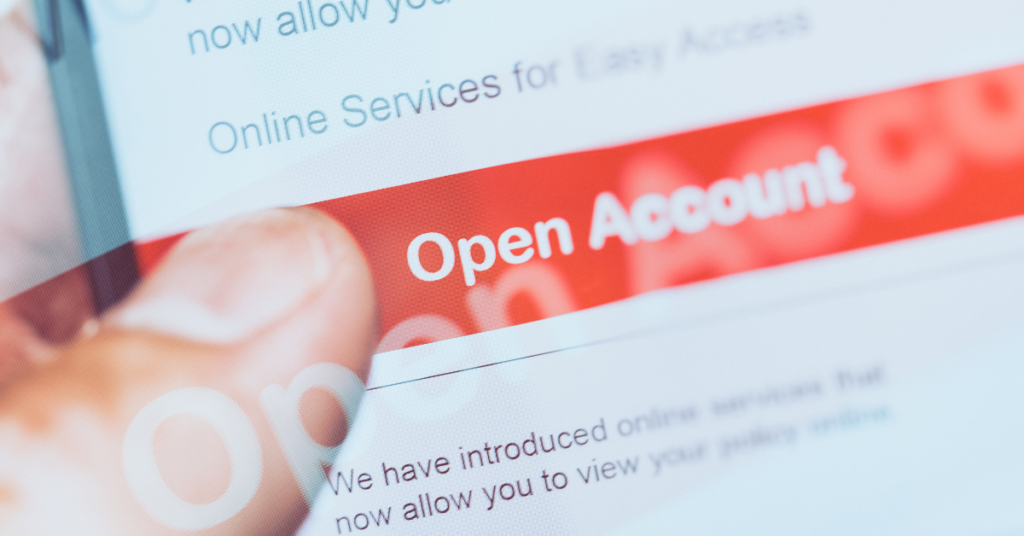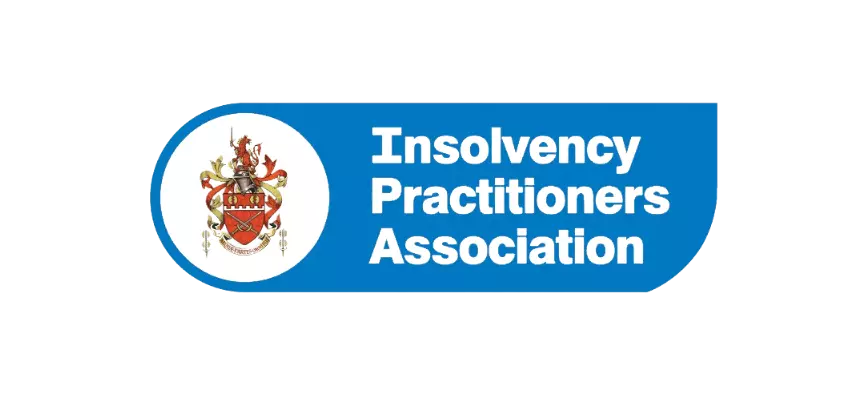If you’ve been going through applying for an Individual Voluntary Arrangement (IVA), you will have been informed of your need to change your bank account.
Why?
Simply put, your current bank has the authority to take any funds for debts that are owed directly from your account.
A new IVA bank account will not only protect your money but will also ensure that alongside the IVA you have a fresh start with a new bank account with an organisation you do not owe money to.
Why Do I Need a New Bank Account in an IVA?
Starting an IVA is a big step towards being in control of your finances but it’s not without its challenges.
One task is to set up a new bank account with a different provider before your IVA starts. This will prevent your current bank from taking funds to pay off debts and cause further financial difficulty.
A separate bank account means your income is safe from creditor action. Moving your income into this new account helps to maintain stability, manage your finances better and keep a tighter grip on your budgeting during the IVA process.
Having a new account before you start an IVA gives you more control over your finances and protects against unexpected creditor withdrawals. It means your money is used as planned and helps you meet your IVA obligations without the stress.
When do you open a new bank account?
You should open a new bank account as soon as possible before your IVA is approved. This avoids potential complications like your current bank being frozen or the bank closing your account if you have debts with them included in the IVA.
Once you’ve opened your new account, move all your essential direct debits and standing orders across so payments are not interrupted, including any automatic credit transfers.
Missed payments could affect your eligibility for the preferred account so act fast and don’t delay.
IVA Bank Account Types
Knowing the types of bank accounts for IVA customers can help locate suitable bank providers much easier.
IVA customers can open basic or current accounts, but credit accounts, such as ones with overdrafts, are not preferable. Creditors can see this as contradictory to someone wishing to become debt-free by maintaining open credit accounts.
The three types of accounts you should consider are basic bank accounts, managed bank accounts and savings accounts. Each has its own features and benefits that make them suitable for people in an IVA.
Basic Bank Accounts
Basic bank accounts are typically for people who cannot obtain a standard account due to an adverse credit rating. These are usually the best options for IVA customers, as they provide basic banking facilities without the risk of overspending and usually no overdraft facility.
Despite being basic, basic bank accounts offer online banking, electronic spending with a debit card and the ability to set up direct debits for regular payments so managing your finances is easy and stress free.
A basic bank account is ideal for IVA customers as it is specifically designed to help people with financial difficulty manage their money. It provides a safety net so that only available funds are spent, which is key during an IVA.
Managed Bank Accounts
Managed bank accounts provide a structured way to manage your finances, especially for those who struggle with spending. These accounts automatically set aside money for priority bills when you get paid so your essential bills are always covered and you’re less likely to miss important bills.
However managed bank accounts usually have a monthly fee for monthly payments, typically £15-£20. Despite the cost they can be useful for people who need extra help with budgeting and making sure bills are paid on time.
Savings Accounts during an IVA
An IVA will affect your credit score, but it doesn’t stop you from opening a savings account, as this doesn’t involve borrowing money.
Your credit history doesn’t affect your ability to open a savings account. This way, you can save for future payments or emergencies, reduce the temptation to spend, and have funds available for essential expenses.
Although a savings account is permitted, any savings must come from your living expense budget and be disclosed to your Insolvency Practitioner (IP).
This transparency is key to maintain the integrity of your IVA and ensure all financial activities are accounted for within the agreement.
Choosing the Right Bank for Your IVA Account
It is important to choose the right bank for your IVA proposal.
It’s not always common knowledge, but it’s worth remembering that some banking institutions are actually related and within the same group structure.
Examples of this are Natwest and Royal Bank of Scotland (RBS), both part of the Natwest group, and Lloyds, Halifax, and Bank of Scotland (BOS), which are within the Lloyds Banking Group.
It’s crucial to understand that if you open a bank account with a different institution that belongs to the same group, they can still use the funds in that account to offset your debt. This creates a conflict of interest for you and puts the funds in that account at risk.
Banks That Offer Basic Accounts
Several banks offer basic accounts for IVA customers if there are no fraud convictions. Co-operative Bank and Metro Bank are options but you may need to visit in person to set up an account.
Choosing a bank that offers basic accounts is good as they provide banking services without the risk of overspending, perfect for people managing their finances under an IVA.
Avoid Banks You Owe Money To
Avoid banks where you have existing debts when opening a new bank account for your IVA. Staying with a bank where you owe money can result in your account being frozen or closed once the IVA starts and make managing IVA payments difficult.
Nationwide, HSBC and First Direct tend not to keep accounts for people who are about to start an IVA. To avoid this complication, choose a bank where you have no existing debts, so no automatic deductions and account freezing.
Switching to a different bank protects your income and ensures funds are available for IVA payments and essential living costs. To avoid set-off risks, make sure your new bank is not related to any creditors.
How to Open Your New IVA Bank Account
Opening a new bank account before you start your IVA involves several steps.
First, find banks where you have no existing debts and check their basic account eligibility. Applying online for a basic account is usually the quickest way to switch, as these accounts don’t require credit checks.
Once the new account is open, transfer all direct debits and standing orders as soon as possible to avoid disruption. Check with your employer to find out how long it will take to move your salary to the new account.
Transfer all your money from your old account to the new one to protect your funds from any creditor activity related to your IVA. This will maintain your financial stability and control during the IVA process.
Managing Your Bank Account During IVA
Managing your bank account during IVA ensures you meet your financial obligations. Create a budget for your essential expenses and IVA payments. Review your spending regularly to ensure you’re sticking to your budget and not overspending.
A Managed Bank Account can prioritise bill payments by setting aside funds once income is deposited. Having a savings account during an IVA allows you to keep cash for essential payments and budgeting.
However, banks may freeze your account during the IVA process and treat it as bankruptcy. Monitor your account status regularly to avoid any disruption to your financial management.
Issues and How to Fix Them
Despite planning, issues can still arise when managing your bank account during IVA. Common problems are account freezing and set-off risks. Knowing how to fix these issues will help you navigate the IVA process.
Account Freezing
Account freezing can be a real problem during an IVA.
To protect your income from bank action, switch banks as soon as possible before you start the IVA. If your account is frozen incorrectly, it can be sorted out quickly but will disrupt IVA payments.
If your account is frozen, your credit balance could be affected, and you may struggle to meet your financial commitments. To minimise these risks, make sure your new credit file is fully operational before you start the IVA.
Set-Off Risks
Set-off risks occur when banks use funds from your account to pay off debts included in your IVA.
To avoid this, open an account with a bank where you have no existing debts or obligations. This will protect your funds and ensure they’re available for IVA payments and essential living costs.
Knowing your right of set-off and taking proactive steps to avoid it will maintain your financial stability during the IVA process. Choosing a bank that is not related to any creditors is key.
Can You Get Credit During IVA?
Getting credit during an IVA is difficult but not impossible. You’ll need your insolvency practitioner’s approval if the amount is over £500 to ensure extra credit doesn’t put your IVA at risk.
Taking out credit over £500 without your IVA supervisor’s consent breaches the IVA. Get permission for any significant borrowing from family or friends to stay compliant with IVA and avoid severe consequences.
IVA Bank Accounts – Conclusion
Choosing and managing the right bank account during IVA is key to financial stability.
Opening a new bank account before you start the IVA will protect your income and give you more control over your finances. Choosing the right type of account (basic or managed) will make life easier.
You can manage the IVA process by knowing the issues, such as account freezing and set-off risks, and taking proactive steps to fix them.
Remember, stay informed and prepared, and you’ll manage your finances during IVA successfully and achieve the debt-free future you are aiming for.
FAQs
Why do I need to open a new bank account before I start the IVA?
You need to open a new bank account before you start the IVA to protect your income from being accessed by your current bank for debt repayment and to maintain financial stability during the process.
What type of bank accounts are suitable for IVA customers?
IVA customers should have basic bank accounts for basic banking without credit or managed bank accounts to prioritise bill payments and savings accounts to set aside funds.
These options will help you manage your finances while adhering to IVA rules.
How do I avoid account freezing during IVA?
To avoid account freezing during IVA, open a new bank account with a different bank where you have no existing debts before you start the IVA.
This will protect your income from the risks associated with your current bank.
Can I get credit during IVA?
You can get credit during IVA but only with your insolvency practitioner’s approval for amounts over £500.
If you don’t, you risk breaching the terms of the IVA, which could lead to severe consequences, including termination of your IVA and potential bankruptcy.
What if my account gets frozen during IVA?
If your account gets frozen during the IVA, contact your bank and your insolvency practitioner ASAP.
Also, to avoid this, make sure you have an open account before you start the IVA.







